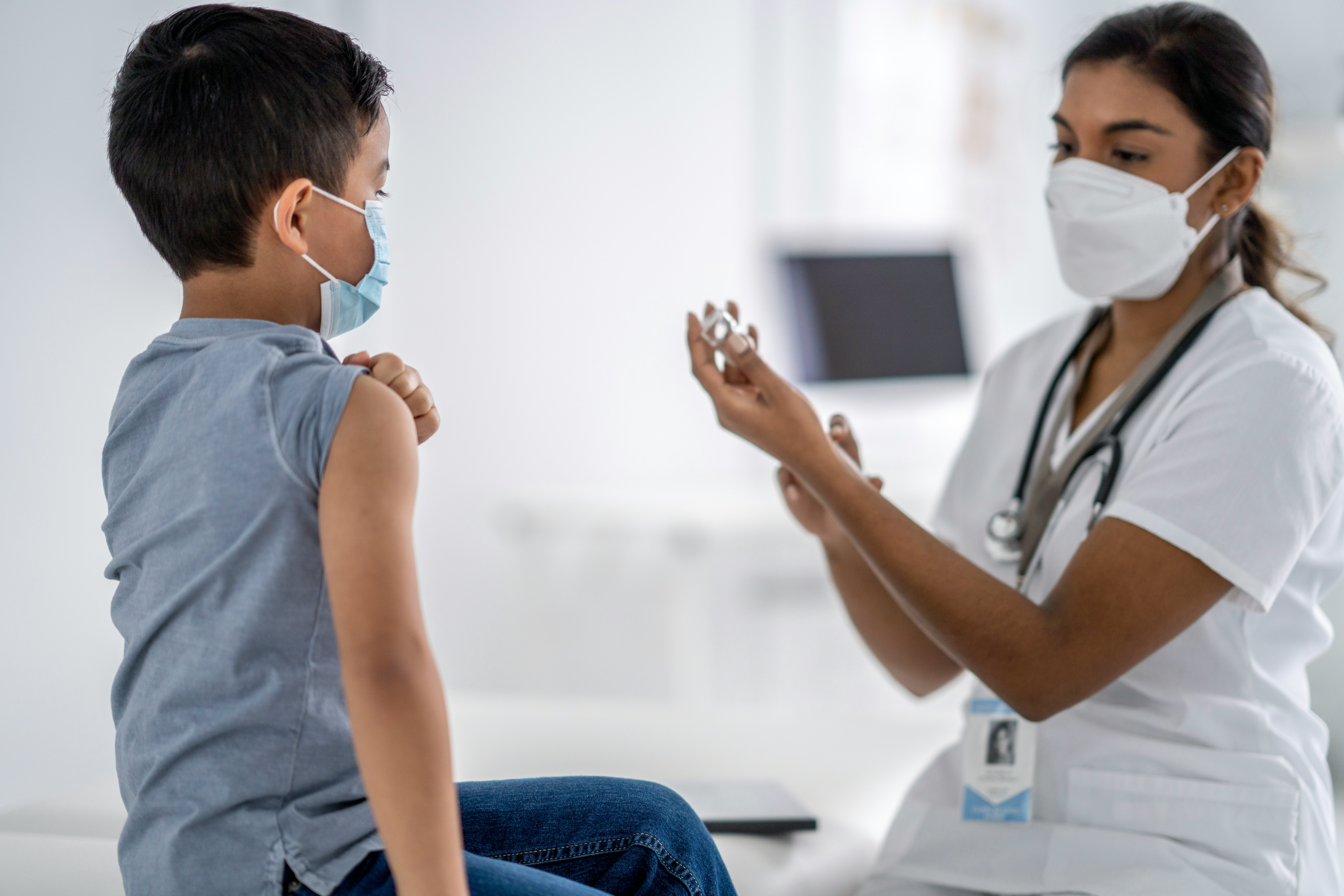
Just like that, there’s an updated Covid-19 booster on its way. Yesterday, the Food and Drug Administration (FDA) approved a new version of the mRNA vaccines for people aged 12 and older. The agency also provided an emergency use authorization for infants and kids aged 6 months to 11 years.
This new iteration aims to “more closely target currently circulating variants” and “provide better protection against serious consequences of Covid-19, including hospitalization and death,” according to the FDA’s press release.
If you’ve lost count of the number of Covid-19 boosters that have come out in the last few years, you aren’t alone. It can feel both daunting and frankly annoying to try to keep up with the latest information. So here’s an easy breakdown of what you need to know about these latest shots, what they do, and, most importantly, when and where you can get one.
When will the new vaccine be available?
Right now, there’s no hard date when the new booster will be available, but it should be very soon. The Centers for Disease Control (CDC) held an advisory meeting on Tuesday, September 12, and recommended everyone aged 6 months and older receive one dose of the new booster. Soon, the CDC will make its own recommendation based on the advice of its advisors. Since most pharmacies and doctor’s offices will use the CDC’s recommendations, once the CDC’s director makes the call, the new shot will ship to pharmacies and clinics nationwide in a matter of days.
What variants does it protect against? How is it different from other Covid-19 vaccines?
This updated formula most closely targets the Omicron variant XBB.1.5, but Jennifer Nuzzo, epidemiology professor and director of the Pandemic Center at the Brown University School of Public Health, tells Inverse that it should also protect people against other strains such as EG.5 (Eris).
Eris, a current variant of interest to the World Health Organization, is a subtype of Omicron, so it's under the umbrella of protection.
How long will protection last?
Vaccines fortify our immune systems with a flood of antibodies, which in this case, protects us from severe symptoms and infection. This reinforcement, however, isn’t permanent.
“What we can tell is that the levels of neutralizing antibodies do decline substantially after six months,” David Montefiori, professor and director of the Laboratory for HIV and Covid-19 Vaccine Research and Development at Duke University Medical Center, tells Inverse.
Nuzzo distinguishes protection against severe symptoms from protection against severe infection. The former begins to wane at around 12 weeks, while the latter remains strong for many months. Nuzzo says experts have seen the vaccine protect against infection so well that even those who were vaccinated but not boosted have some coverage — though a booster reinforces that protection.
When is the optimal time to get vaccinated?
“Before you get infected,” Nuzzo says wryly. “What I really mean is that I worry that in trying to optimize the timing, sometimes people may miss the window.”
This answer also changes depending on who you are. For instance, if you’re at high risk for severe infection, then the answer is to get boosted as soon as possible. However, for healthy people, Nuzzo says there’s a little more flexibility.
She underscores that if you have an event that you’re looking forward to, the absolute latest you can wait is three weeks out. This way, there’s ample time for the antibodies to build to full protection. If there’s a Halloween party you’re looking forward to, Nuzzo says that October 10 is your vaccine deadline. The risk to playing this waiting game, as she says, is that you might end up getting infected in the interim.
Can I get vaccinated while I have Covid?
You shouldn’t do anything while you have Covid-19, including going to public clinics to get vaccinated. However, don’t get your vaccine the day you’re finished isolating and feeling 100 percent. Better to wait about three months if you’re low-risk.
“Wait,” Nuzzo recommends, “because your Covid infection’s your booster.” In other words, once your body has finished fighting off the virus, it’s full of vigilant antibodies. The vaccine galvanizes your immune system by flooding it with Covid-19 antibodies, so a Covid-19 infection naturally accomplishes the same thing. If your booster overlaps with your post-infection period, then you’re potentially losing a period of “good free insurance,” as Nuzzo puts it. High-risk folks, however, would benefit from getting vaccinated once they’re symptom-free and finished isolating, Nuzzo says.
Nuzzo, who just got over a bout of Covid-19 herself, tells Inverse she “will probably wait at least 90 days” to get boosted.
Do I need the booster if I’ve already had Covid?
While an infection acts as a natural booster, that doesn’t give you a pass. Montefiori says getting boosted isn’t as critical for healthy people who are just getting over Covid, but he still “seriously recommends getting the booster if it’s been more than three months since your infection.”







